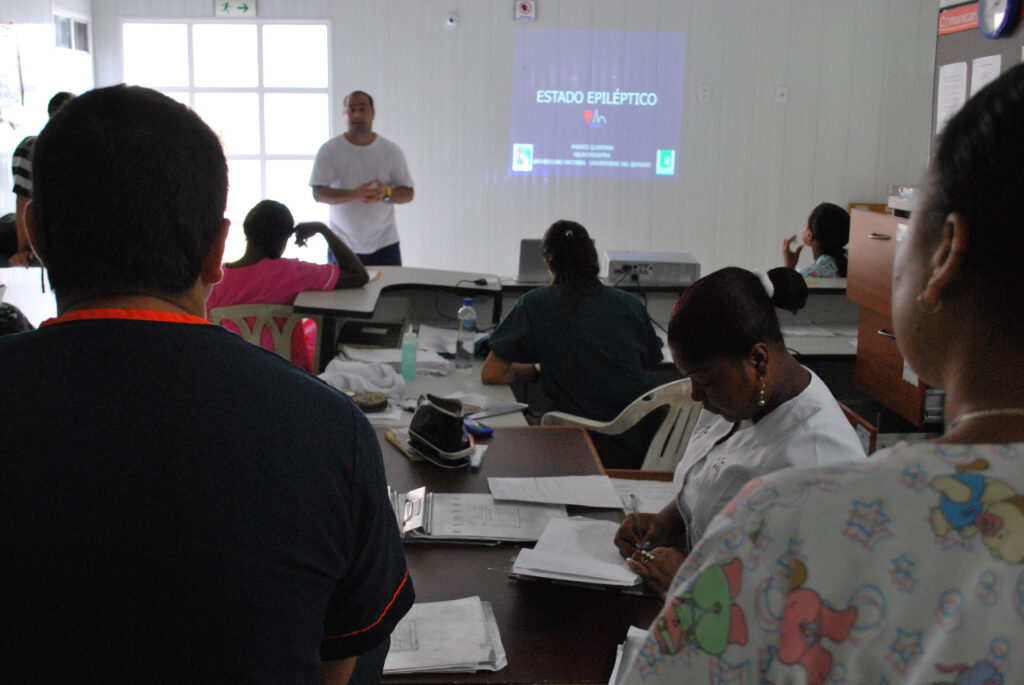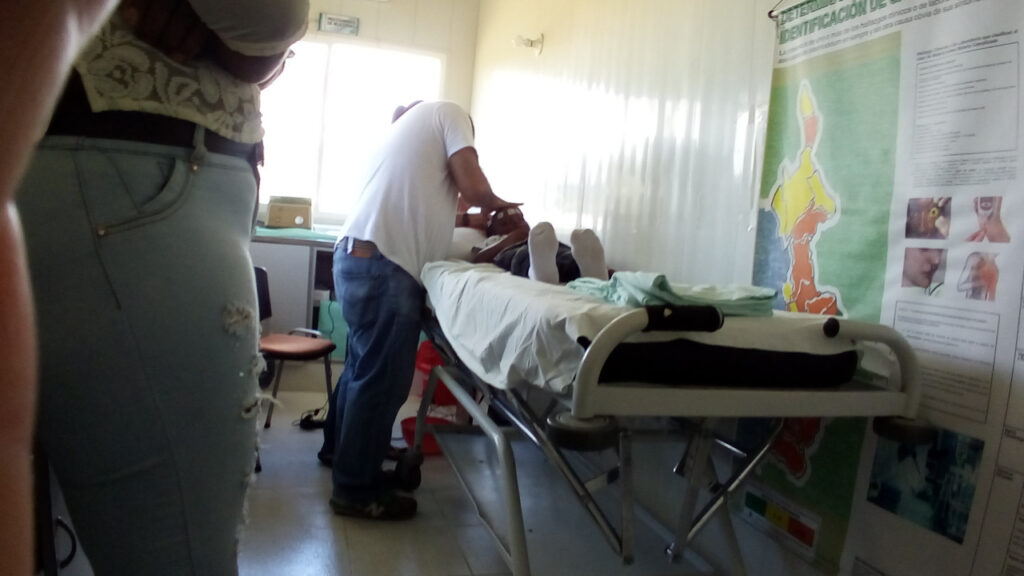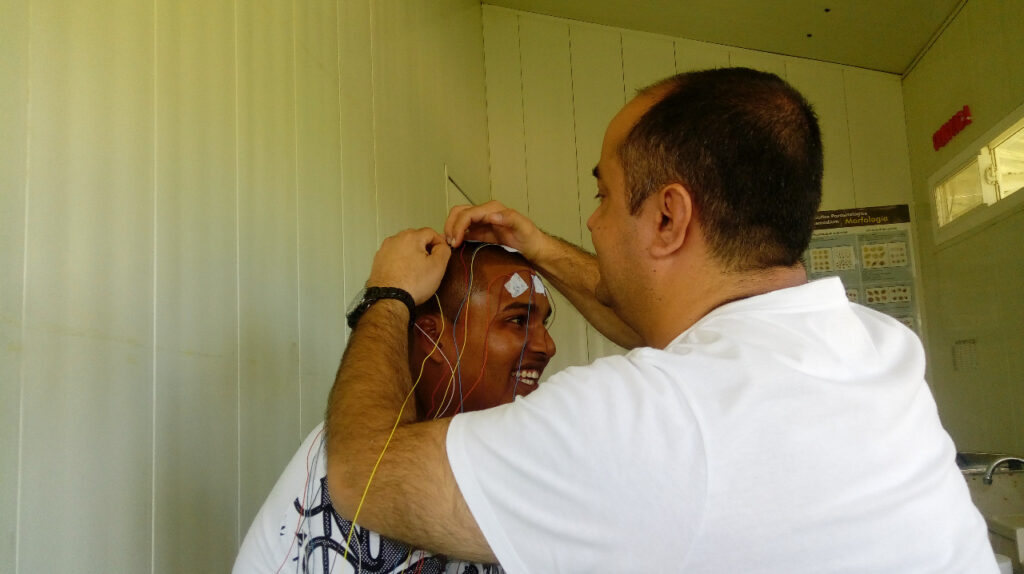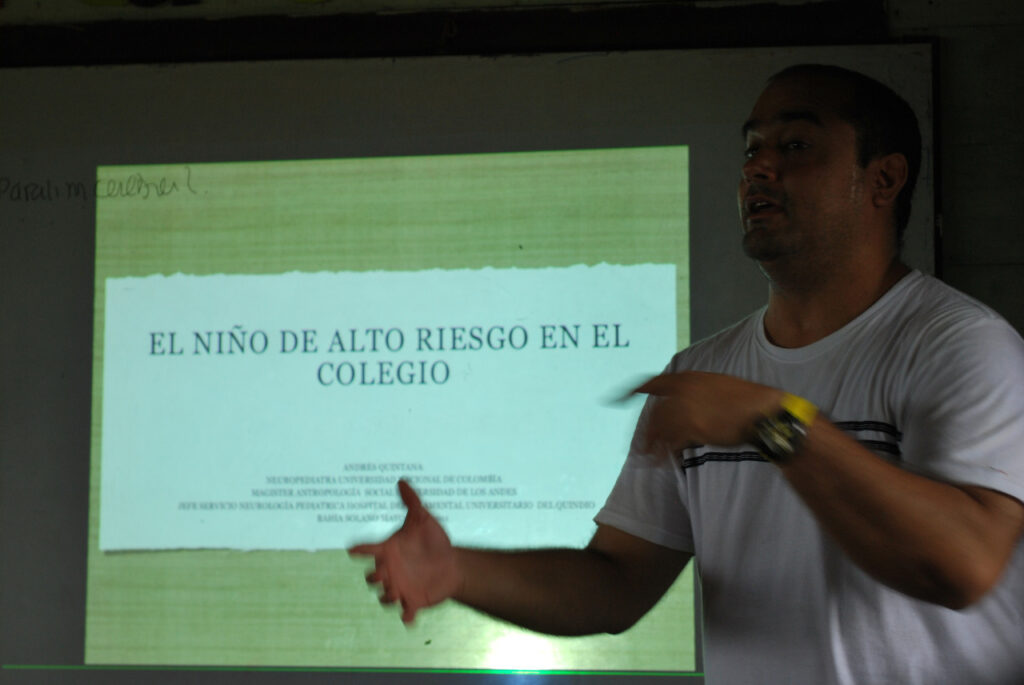How to give back to society some of the benefits received during life? For Dr. Andrés Quintana, a doctor specialized in neuropediatric’s, the answer lies in voluntary expeditions to rural areas, far from large centers, that suffer from the lack of professional care and medical attention.
Since 2010, the doctor has been carrying out 4 to 6 expeditions a year, specifically to the region of the municipality of Bahia Solano (Colombia), where he performs comprehensive exams on pediatric patients who show some type of neurological symptom. Therefore, he is often able to act preventively with the support of the local population and school teacher’s who are important figures in the early identification of neurological signs in their students.
Neurovirtual interviewed Dr. Andres, who explained in detail, how the project started and the importance of having the support of companies like Neurovirtual on his expeditions.
Neurovirtual News: We would like to know more about you, and how you developed your career over the years.
Dr. Andrés Quintana: I am a doctor graduated from the University of Quindio and specialized in Neuropediatrics by the National University of Colombia and the Central League Against Epilepsy, under the supervision of Dr. Carlos Medina Malo and Álvaro Izquierd. I am also an anthropologist, from the Universidad de los Andes.
NN: When did you start these solidarity expeditions to serve populations with little or no access to medicine?
Dr. Andrés Quintana: I started in 2010, focusing on the Choco department specifically in the municipality of Bahia Solano and in the Valle. Our service is focused primarily on the comprehensive care for pediatric patients with neurological symptoms, rather than the lack of medication supplies.

NN: What regions do you usually go to? Are they indigenous communities? How is the process of defining the region to receive care?
Dr. Andrés Quintana: We focus mainly on the population with cognitive and motor disabilities, such as epilepsy. Sometimes we count on the support of other professionals in dental, psychiatric and pediatric care, and we serve Afro-descendant communities and Embera and Wonnan communities too.
NN: Do you have the support of other institutions or the government in your expeditions?
Dr. Andrés Quintana: Most of the time the expeditions are carried out with our own resources or with the collaboration of the pharmaceutical industry, that donate medicines or airline tickets to some of the invited specialists. On other occasions, the local government collaborates with support in transport and accommodation, but there is no constant support from Colombian public institutions. Mostly, our work is invisible, but we have tried to make it constant. We also have support in supplies and payment facilities to buy Neurovirtual electroencephalographic video equipment, allowing this population to benefit from this technology, by making it available to the community.
NN: How do you gain access to these remote regions? What are the challenges you usually face until you reach your destination?
Dr. Andrés Quintana: We arrive in Bahia Solano by plane and, sometimes, to get to the countryside, we travel by boat, motorcycle, car, canoe or on foot, as in any other part of this rural country.

NN: Tell us about the work you do on these visits, what exams do you do? How is the educational process taught to children and adults about epilepsy?
Dr. Andrés Quintana: We do specialized consultations, EEGs and we train teachers for the early identification of childhood neurological pathologies. To a large extent, teachers are the identifiers of these specific situations, as they live close to the children’s families and understand the population very well. All of our support is completely free of charge, including consulting the community, training teachers and doctors, and understanding electroencephalography exams.
NN: What Neurovirtual equipment do you carry on these jobs and how do they assist you in your duties?
Dr. Andrés Quintana: We have used the BWII EEG (since 2012), the BWIII EEG in (2016-2017) and now the BWMini EEG (our journey is still pending because of the pandemic). Likewise, we have the support of Neurovirtual through remote technical support which allows us to overcome unforeseen events even when we are in remote areas of the country.
NN: How important is it to democratize access to information and diagnosis in more remote communities?
Dr. Andrés Quintana: This pandemic has taught us that even though we are in a city, the restrictions in mobility (something that the inhabitants of the peripheries of the country share with our new reality) puts us in a situation of remote assistance not only regarding the physical geographic distance. Therefore, I believe and attest to the fact that telemedicine and access to technologies are not only necessary, but also defines a new approach to the scientific community starting this year.

NN: How has the pandemic changed its dynamics in serving these regions?
Dr. Andrés Quintana: We have not yet been able to return to our expeditions, we are waiting for the situation to get better.
NN: How many expeditions to needy communities have you made in your life thus far?
Dr. Andrés Quintana: Since 2010, I was doing 4 to 6 a year. While I was doing my studies in epilepsy in 2018 and 2019, we stopped expeditions, but came back in February 2020.
NN: In your opinion, what is the main legacy you leave in these communities?
Dr. Andrés Quintana: Without sounding cliché, the truth is that they are very relevant to how I look at my professional activity and to how I develop the work within the communities. I graduated from two public universities and I believe I have something that can be returned to the country.



